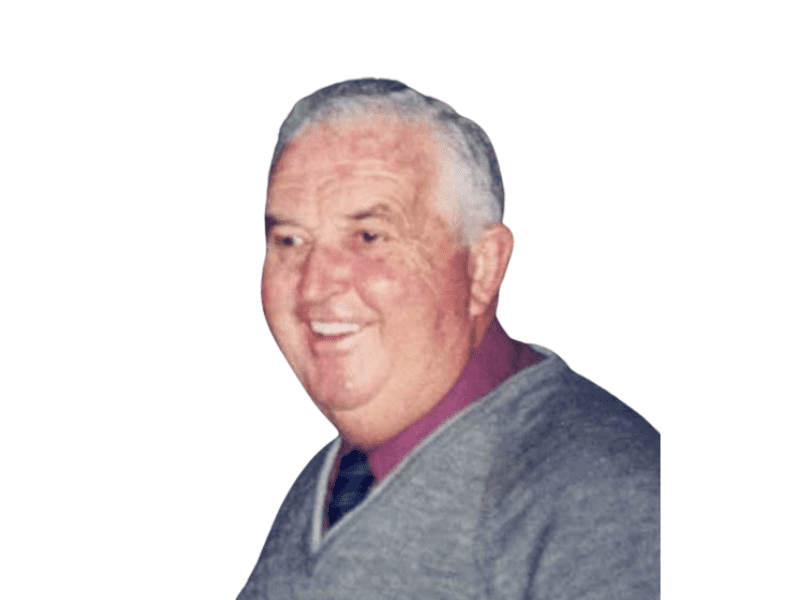I want to tell you about the philanthropist who didn’t give any money to charities.
Actually, I don’t know whether he did, or he didn’t. It was never something we spoke about intentionally and the subject didn’t come up in conversation.
If he did, it wasn’t obvious. And as I write this, I realise it was a question that I never asked.
The time to ask that question or raise the topic has now gone by. My Uncle passed away just before Christmas last year.
A Generous Man
So if there is doubt about whether my Uncle did or didn’t give money to charities, does that suggest he may not have been a generous man?
Well, I can answer that question emphatically. He was generous to a fault. He was kind, gentle and caring.
He loved his family. In his case, as a single man all his life, his family was his extended family. His parents, his sister and brother, his brother-in-law and sister-in-law, his nephews and niece, their partners, their children and their children’s children. It ended up being a big extended family. And he extended his love to all of us. Unreservedly.
He was generous with the gifts he gave. The material gifts, which were at times significant. And the intangible gifts – of time, care and compassion – which were priceless. He was unobtrusively present, and always connected.
He cared for his parents to the end of their lives. He outlived his siblings and that only made the bond he had with their families stronger.
He was grateful for the love and care he received from his family. Even when his health made life much harder than he wanted it to be. And we were grateful for him being a constant in our lives.
There was an even larger collection of relatives and friends. Over the years that number continued to decline, more and more quickly. But he remained connected, and caring, and that love and care was extended back to him.
Who is a Philanthropist?
He loved people. People loved him. He was by the most basic definition, a philanthropist.
So how does that reconcile with the idea that a philanthropist is someone who gives money to charities. And a lot of money at that! Surely someone who didn’t do that isn’t a philanthropist?
Or maybe, just maybe, we have shifted the idea of what we understand philanthropy to be if this is a question. Perhaps we need to reassess what we understand this word to mean and who it might apply to.
In his book ‘What Makes Us Tick’, Hugh MacKay draws the observation that ‘most of us are natural ‘good guys’ who are pleased to do our bit for the common good’. That is quite inclusive. And while there will always be the misanthropes among us, and varying degrees to the extent to which we do our bit for the common good, maybe, just maybe, most of us are in fact philanthropists.
And that doesn’t mean that we are all disposed to give money to charities. The common good each of us will identify will largely depend on what moves us. What is important to us and the people and things we love. What connects us and what we relate to. Where we feel useful and valued and even loved.
My Uncle may or may not have given to charities. If not, it was most likely because there were other people and things in his life that he valued more. Was more connected and useful to. And that was where he made his difference.
And he may or may not have been asked, or sufficiently engaged to, to find his way to something he felt was more important than this.
Love of People
But none of that had any bearing on his love of people. That was unambiguous.
So, what does this have to do with fundraising and philanthropic engagement? Only a lot, perhaps everything.
The question to ask is what are we doing to meaningfully engage people as they seek to do their bit for the common good? Are we exploring their desire to be useful sufficiently or expansively? Are we prepared to invest in the care and time that it takes to build an authentic relationship with people who may be moved to the purpose we serve?
Or are we so focused on what we need to accomplish that we miss the opportunity to engage the people who love people and are pleased to do their bit for the common good? Are we content to just accept the gifts of those who come more readily to us, rather than open up to those who may need more care and connection to help find their way?
And what does this mean for the purpose we serve? How does this impact the common good?
The Key to Effective Fundraising
Understanding philanthropy is the key to being effective in fundraising. This challenges us to be clear and confident in what that understanding is, and how it is translated in to practice and human experience.
It also challenges us in how we conduct fundraising practice, engage those who do and may give, and plan, resource, manage, measure and report the work we do in fundraising.
Just as it challenges those who lead organisations engaged in philanthropy and fundraising practice to lean in to and understand this work. The Board members and the executives and others who influence and advocate. Those who have the ultimate responsibility to advance the purpose they serve.
My Uncle was a good man. The best of men. He sought to be and was, useful, and served his common good. In his way, he was a philanthropist. The proof was in the love he gave and received.
He was not alone. There are many good people serving the common good. Most of us, if you accept Hugh MacKay’s view.
So how do you invite those good people in to your purpose? A start may be to focus on their needs, rather than yours, in order to meet the needs of those you serve.
Nigel Harris AM
Photo: John Graham Harris (1932 – 2022)


